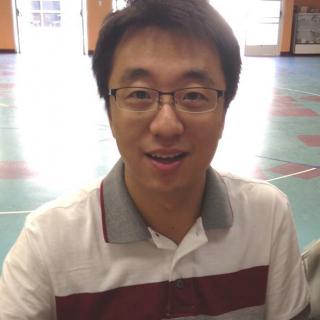Postdoctoral Scholar

Dr. Aaron J. Berliner is a postdoctoral scholar at the University of California Berkeley, as well as the major domo of the NASA-funded Space Technology Research Institute (STRI) CUBES (Center for the Utilization of Biological Engineering in Space). He obtained both his Ph.D. in Bioengineering under Dr. Adam Arkin and his M.S. in Nuclear Engineering under Dr. Bernstein from UC Berkeley in 2022. Prior to this, he studied biomedical engineering, and synthetic & systems biology at Boston University. Dr. Berliner began his career at the NASA Ames Research Center under Dr John Hogan and Dr. John Cumbers, where he worked on projects involving 3D printing, bioelectrochemistry, and astrobiology. In 2013, he joined the Life Sciences group of Autodesk Research in San Francisco, working on diverse projects such as bioprinting, software engineering, synthetic virology, and DNA origami. Accepting that he had caught the “space bug,” he returned to academia to help establish CUBES and begin work on Crucible, an open-source reactor for space synthetic biology experiments.
With a strong background in bioengineering, nuclear engineering, and systems engineering, Dr. Berliner has made significant contributions to the field of Space Bioprocess Engineering (SBE), an interdisciplinary field integrating bioengineering principles to develop biotechnologies for long-term space missions. His primary focus has been designing a biomanufactory-driven reference mission architecture for human exploration of Mars, aiding space agencies in their mission planning by providing parametric designs on requirements and operational aspects driven by specific biological systems, including advanced life support, biological and chemical manufacturing, and in situ resource utilization (ISRU). Dr. Berliner's vision is to harness living systems to support off-world biomanufacturing, realizing the inherent mass, power, and volume advantages offered by biotechnology over traditional mechanical and chemical approaches. His expertise and commitment to the field in the integration of bioengineering into human space exploration has most recently been acknowledged with his acceptance of a lectureship at UC Berkeley in the new Program in Aerospace Engineering.

Sulogna Chatterjee is a Postdoctoral Fellow in Criddle-group at Stanford University where she is working on Metabolic Engineering of autotrophic microorganism for better carbon efficiency and production of high-performance bioplastics.
Dr. Sulogna is a DST Inspire Fellow, holds a PhD degree in "Environmental Biotechnology & Microbiology" from "CSIR- Indian Institute of Chemical Technology", India. Her research interest is carbon conversion, waste valorization, bioprocess designing, bioreactor operations, fermentation technologies, bioenergy production and circular biorefinery systems.
During her PhD she has published several high impact research papers and has been awarded the “Research Excellence Award” by BRSI-India and "Best Research Fellow Award" by CSIR-India. She has also represented 'India' in C3E- Women in Clean Energy Education Empowerment Symposium organized by U.S Department of Energy, MIT Energy Initiative, Stanford Energy and Texas A&M University, 2019.

Zohaib Siddiqi was born in Brooklyn, New York, but was raised in the Bay Area, California. He pursued his B.S. in chemistry at the University of Michigan Ann Arbor, where he conducted research on melt-cast energetic materials with Professor Adam Matzger and MOF supported homogeneous catalysts with Professor Melanie Sanford. He obtained his Ph.D. in 2023 under Professor David Sarlah at the University of Illinois Urbana–Champaign, where his work was focused on the dearomative oxidation of aromatic and heteroaromatic compounds, as well the dearomatization of commodity polymers. Afterwards, Zohaib joined the lab of Professor Brooks Abel at the University of California Berkeley, where his work will be focused on developing novel methods for controlled cationic ring opening polymerizations.

Sunggeun Woo earned his B.S. and M.S. from Yonsei University in South Korea. During his B.S. and M.S. programs, he studied in the civil and environmental engineering department and he narrowed down his research focus to environmental biotechnology in his M.S. program, where he wrote fifteen papers for about two and a half years including five of them as the lead-author. At that time, the research topics were various in the field of environmental biotechnology including wastewater treatment systems, isolation and cultivation of microorganisms and harnessing renewable bio-diesel from microalgae. Based on the wide range of understandings, Sunggeun Woo joined the Criddle group for his Ph.D. program in September, 2012 focusing on the Coupled Aerobic-anoxic Nitrous Decomposition Operation (CANDO) project. Sunggeun Woo participated in developing the CANDO process which produces a renewable energy, nitrous oxide (N2O), from nitrogen pollutants through microorganisms. During his Ph.D. program, Sunggeun Woo's main focus was to elucidate the microbial members that produce N2O and the metabolic pathways in them related to N2O and polyhydroxybutyrate (PHB) production. He graduated from Ph.D. program in January, 2018 and he is now continuing his research as a post-doctoral scholar in the Criddle group. His research is currently focusing on the recovery of renewable energy and materials from waste or wastewater using microorganisms.